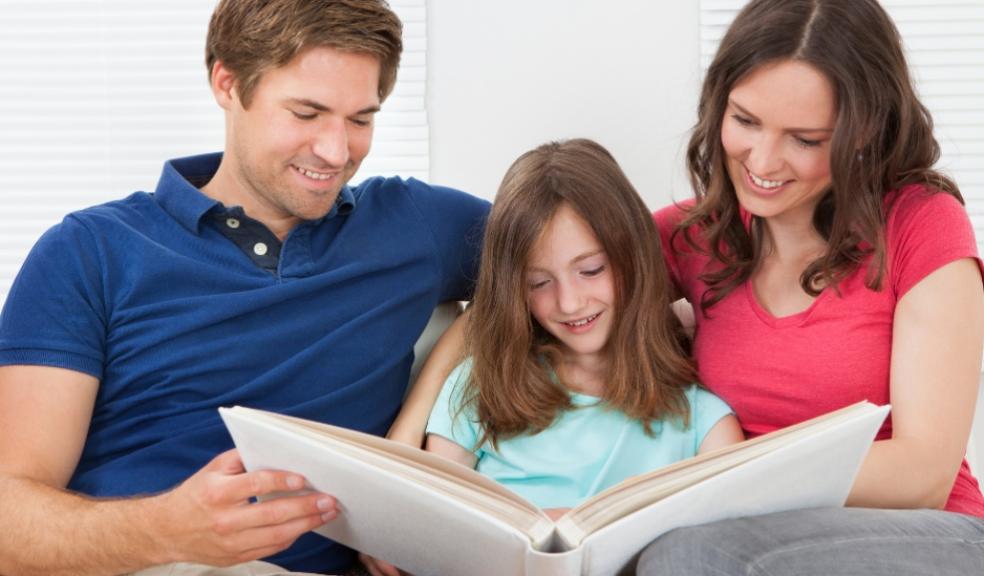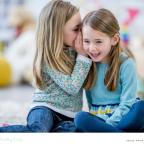
Joining the pixels: the easiest way to put a smile on your child’s face
New research reveals the positive impact of ‘photo therapy’ on children’s mental wellbeing
94% of parents agree their child feels happier when they look at photos of themselves at home with their family
94% agree that looking at their child’s photos together as a family helps them to feel more connected
89% agree that looking at family photos increases their child’s sense of belonging
90% agree that when their child looks at photos of themselves they start smiling and laughing
94% of parents recognise the power that family photo albums have to make their children feel happier and families to feel more connected. New research commissioned by family photo journal app BackThen and conducted by The Pulse Business reveals the positive impact of ‘photo therapy’, an expressive arts therapy using photography to help all parents bond more deeply with their children.
Professor Geoffrey Beattie, internationally acclaimed psychologist, author and broadcaster who was the resident on-screen psychologist for 11 series of Big Brother, commented on the findings. He explained that we, as humans, “underestimate the considerable psychological power of family portraiture.”
The findings delivered insights that revealed the power of family photography to trigger conversations and bind families; to provide a means of active mood management; and to implant and strengthen childhood memories - all proven to positively impact children’s mental wellbeing now and in later life. 1. Triggering conversations and binding families 94% of parents agreed that looking at their child's photos together as a family helps them to feel more connected to each other; 89% of parents added that looking at family photos increases their child's sense of belonging. Parents pointed out that family photos create a feeling of being loved and cherished and reassure children that they have a meaning and a place in the world.
As one parent commented: “It creates chances for us to connect, share moments and I believe it helps her feel more loved and connected to see moments that happened that she may not actually remember happening because she was so little.”
Professor Beattie expanded on what is driving this: “Photo albums do seem to trigger a lot of conversations within the family and it’s these conversations that draw families together because they sit down to talk about it as one. Photography takes them to the next level of intimacy; it connects a family together on a deeper, more intimate level. It acts as a social binding device for the family.”
Pete Triplow, Founder, BackThen, added: “What this research tells us is that for parents, looking at a timeline of photos with their children builds a closer bond and raises the importance of bringing those memories back into the present. It means the whole family can remember, share recollections that might have been forgotten and feel closer both through remembering the experience itself and being reminded of the pleasure it gave.”
Numerous psychological and sociological studies have pointed to the positive impact on children’s mental wellbeing caused by a strong sense of belonging within families. Long-term benefits include fewer symptoms of depression and anxiety and higher self-esteem, less likelihood of engaging in risky behaviours and more likelihood of succeeding academically and socially.
2. Active mood management 90% of respondents confirmed that their child smiles or laughs when they look at photos of themselves. Parents even suggested that photo albums are a great way to help children at moments in their lives when they are feeling overwhelmed, down in the dumps or when they have lost perspective. As one parent shared: “My son often feels overwhelmed at times and photos help him focus on the positives. He smiles and talks about what happened in the photo and often talks about going back somewhere.” Professor Geoffrey Beattie commented on the psychological reasons for family photos being able to create such rapid mood improvements: “There are a number of categories of mood management techniques - some work really well, and others not well at all. Looking at family photo albums fits into the most effective category: active mood management, in which you distract yourself from the present negative mood and actively change your pattern of thinking. To a lesser extent, it also fits the second-most effective category: seeking pleasurable activities and distraction, the intentional act of engaging in activities or pursuits that elicit positive feelings.”
Pete Triplow added: “Family photo albums give a bigger picture and context to a child's life and their place in the family that surrounds them. Memories are a powerful emotional tool for anyone struggling in the present moment, providing reassurance, distraction, warmth and a vital comforting stability.”
A range of psychological studies have emphasised the profound impact of active mood management techniques, linked to a plethora of long-term benefits, including buffering against depressive symptoms, fostering resilience, enhancing emotional regulation, and promoting overall psychological well-being.
3. Implanting and strengthening childhood memories Many of BackThen’s users reported that family photo albums help to implant and strengthen childhood memories so these moments will be remembered in a stronger and more positive fashion in future.
Professor Beattie explained how this works: “Family photographs act as a prime, a way of enhancing a memory from a particular moment or time. The brain stores information about events in your life and information about your bodily sensations at the same time in an associated neural network. This network provides two cues to positive memories – the physical representation of people in a photograph itself and the congruent nonverbal behaviour that is the smile that is elicited when you look at the photograph. Both act together to help us remember the good times much more effectively.” Pete Triplow added: “Family photographs can trigger different memories and emotions depending on your role in the moment and the family. A child shouting with delight while sprinting down a hill might remember that feeling of exhilaration, while a parent recalls the anxiety and then relief as they make it safely to the bottom. Using a photo as a base to revisit a memory allows that memory to be enhanced, embedded and given a greater context that adds immeasurable value going forward.”
The frequency with which positive memories are recalled helps enhance emotional well-being over time and can act as a buffer during challenging times, reminding individuals of past resilience and happiness. Positive childhood memories can serve as a foundation for a stable sense of self and can act as a protective factor against future psychological distress.















